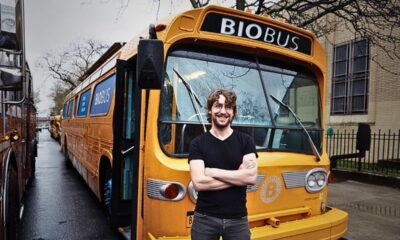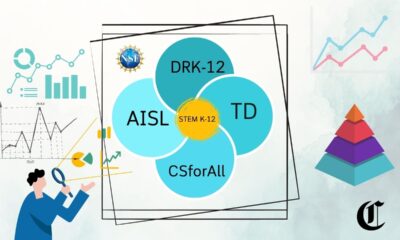Questions of the Day Program
What is the open and equitable model funding program framework? Eunice Mercado-Lara explains.
Originally aired on Oct 20, 2022.
Eunice Mercado-Lara, born and raised in a small city in Mexico, strongly believes open and collaborative environments are the most effective way to solve complex problems. Over the last decade, she has been a passionate advocate of openness regarding government, data, and science. The questions that keep her awake at night are: What are the variables for openness success? What leads institutions and individuals into openness and collaboration? Eunice is the Civic Science Fellow at the Open Research Funders Group. She is the project lead for the Open & Equitable Model Funding Program that advises philanthropies to optimize their funding models to increase openness and equity in research making. She has more than eight years of experience in the public sector in science and technology policymaking. She has served as an advisor for startups on the responsible use and implementation of new technologies and their regulations.
She is a former Project Manager for the AI Training Programs at Montreal NewTech, and Deputy Director for Science and Technology Policy at the National Council of Science and Technology in Mexico. She has collaborated as a researcher within the Center for Technology in Government at SUNY Albany, the AidData Research Lab at William & Mary, and the Center for Research and Teaching in Economics in Mexico.
Eunice served as a board and committee member in several international organizations and initiatives advocating for openness, such as CERN’s SCOAP3 initiative, the International Open Access Week, and OpenCon LATAM. She holds a Master’s Degree in Public Policy from McGill University and a B.A. from El Colegio de San Luis. Read here for more on Eunice: https://civicsciencefellows.org/fellows/eunice-mercado-lara/
Fanuel Muindi is a former neuroscientist turned civic science ethnographer. He is a professor of the practice in the Department of Communication Studies within the College of Arts, Media, and Design at Northeastern University, where he leads the Civic Science Media Lab. Dr. Muindi received his Bachelor’s degree in Biology and PhD in Organismal Biology from Morehouse College and Stanford University, respectively. He completed his postdoctoral training at MIT.

-
 Audio Studio1 month ago
Audio Studio1 month ago“Reading it opened up a whole new world.” Kim Steele on building her company ‘Documentaries Don’t Work’
-
Civic Science Observer1 week ago
‘Science policy’ Google searches spiked in 2025. What does that mean?
-
Civic Science Observer1 month ago
Our developing civic science photojournalism experiment: Photos from 2025
-
Civic Science Observer1 month ago
Together again: Day 1 of the 2025 ASTC conference in black and white
Contact
Menu
Designed with WordPress























